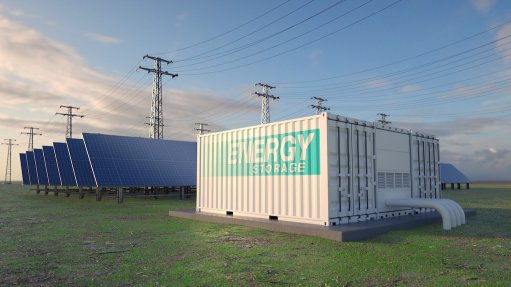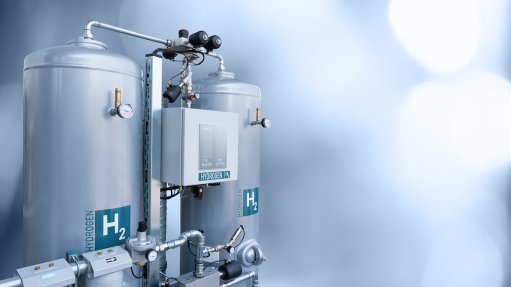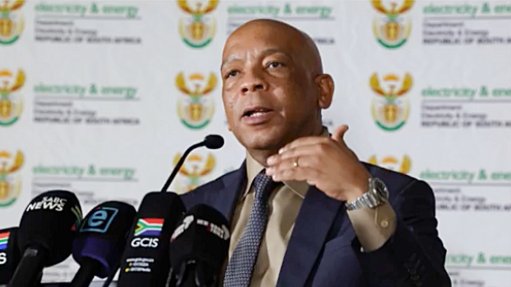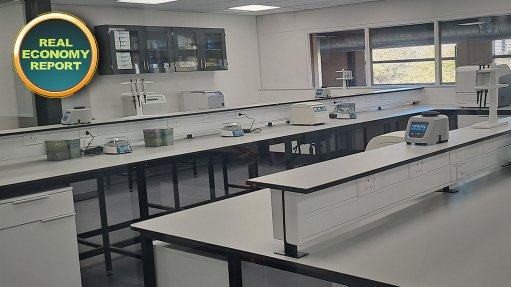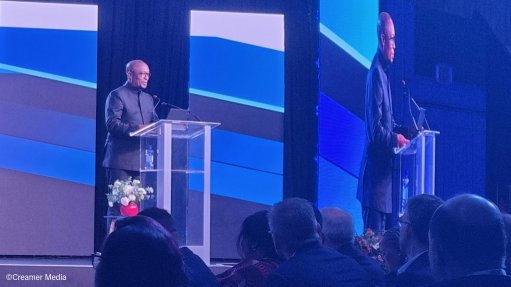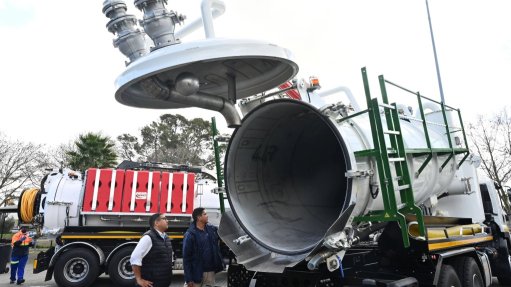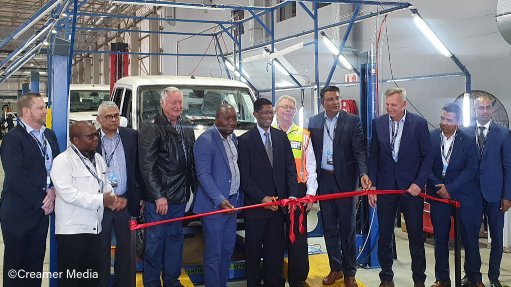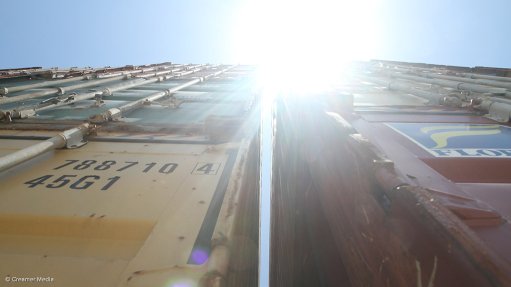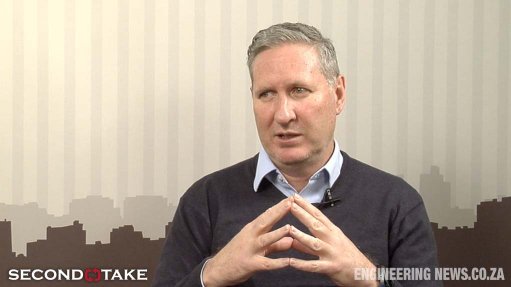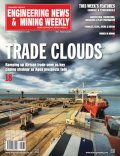Toyota’s Van Zyl warns of ramifications of EU’s Green Deal on South African exports
Europe’s Green Deal is not just a vision or idea, but a well-funded policy that is being implemented, and that is set to have a wide-ranging impact on South African exports, says Toyota South Africa Motors (TSAM) executive chairperson Dr Johan van Zyl.
Van Zyl stepped down as Toyota Motors Europe president and CEO earlier this year.
The European Union’s (EU’s) Green Deal is a set of policy initiatives to turn Europe carbon-neutral by 2050.
These initiatives include sustainable transport, such as a move to zero-emission vehicles; a transition to a circular economy, which includes the recycling of metals and minerals; and zero pollution, with a complete move to renewable energy, for example.
he policy instruments to achieve carbon neutrality will include the life-cycle assessment (LCA) of goods to determine their green credentials.
This measure has not yet been finalised, but the EU appears serious about its implementation, says Van Zyl.
What this means for South Africa is that the EU could demand that all imported goods be carbon neutral.
The EU is unlikely to allow imports from countries that have not invested in green energy and green production, explains Van Zyl, as such a move may place European companies at a competitive disadvantage.
The EU appears positive that any LCA measures it introduces will be World Trade Organisation compliant, he adds.
This means the EU will consider whether imported goods were manufactured using green steel, aluminium or resin, for example (commodities produced using renewable energy); whether products were made in a plant powered by green energy (renewable energy, as opposed to electricity from South Africa’s coal-fired plants); and whether they were distributed using green transport (such as trucks powered by fuel cells or batteries, as well as green airlines).
While Van Zyl is active in the auto industry, he notes that the same rules would apply to any product from South Africa, including, for example, agricultural exports.
He believes that the LCA initiative will be strengthened by European consumers increasingly demanding green products on their shelves and at their dealers.
“We must look across all our industries and ask how this thing is going to impact my business,” notes Van Zyl. “You can’t wait for LCA to happen and then think how to comply. You need to start now. You need to put plans and strategies in place to be competitive.
“And you might be a Tier 3 supplier to someone exporting to Europe, but you will also need to change to comply with the future regulatory requirements in Europe.”
Mining companies and their suppliers will also need to reconsider their operations as their customers will place increasing emphasis on having a green supply chain, he adds.
“The mine will say: ‘I am exporting raw material, and the raw material needs to be green. “And how do I manufacture green raw material? I need a hydrogen truck’.”
Van Zyl believes that other world markets could follow Europe as it trends greener, with the US already showing a move towards more environment-friendly policies under President Joe Biden.
He emphasises it is not feasible for South Africa to simply ignore what is happening in Europe – or the UK, for that matter, where, for example, the sale of internal-combustion-engine-only vehicles will be prohibited from 2030.
The UK is South Africa’s biggest new-vehicle export market. Also, the EU was the automotive industry’s biggest export region last year, with total automotive exports valued at R105-billion.
“The South African auto industry can’t be blind to these things,” says Van Zyl. “You can’t wait. You can’t say it’s 2030 – 2030 is just here. “In the motor industry, the life cycle is six, seven years, so what we are talking about here is one-and-a-half life cycles and then we must be ready.
“The world is not waiting for you. This is all about competition. If we do not adjust we’ll be excluded from the big markets in the world. If you blink, someone will step into your position very quickly.
“We need to change,” says Van Zyl. “We have a carbon-based economy. We must change that economy. We can see that carbon is not going to be accepted that much longer.
“Whether it is a 100% change, or 60% or 70% – I don’t know.
“I see opportunities in this, but we have to be practical and sustainable. We need to have a good, mapped plan. The European plan is very well worked out and planned and we need the same.
“The first thing we need is a transition in energy. If we look at energy conditions, it’s not as if we have fantastic, consistent energy supply. “So, why don’t we just go green? Why do we wait?” asks Van Zyl.
“We need to say: Put up more solar plants, get more wind, get more hydrogen. Why are we waiting? “Every time we wait, we waste more money, instead of saying let’s go, let’s get more investment in. “There are people ready to invest. What are we protecting? Why are we waiting?”
Comments
Announcements
What's On
Subscribe to improve your user experience...
Option 1 (equivalent of R125 a month):
Receive a weekly copy of Creamer Media's Engineering News & Mining Weekly magazine
(print copy for those in South Africa and e-magazine for those outside of South Africa)
Receive daily email newsletters
Access to full search results
Access archive of magazine back copies
Access to Projects in Progress
Access to ONE Research Report of your choice in PDF format
Option 2 (equivalent of R375 a month):
All benefits from Option 1
PLUS
Access to Creamer Media's Research Channel Africa for ALL Research Reports, in PDF format, on various industrial and mining sectors
including Electricity; Water; Energy Transition; Hydrogen; Roads, Rail and Ports; Coal; Gold; Platinum; Battery Metals; etc.
Already a subscriber?
Forgotten your password?
Receive weekly copy of Creamer Media's Engineering News & Mining Weekly magazine (print copy for those in South Africa and e-magazine for those outside of South Africa)
➕
Recieve daily email newsletters
➕
Access to full search results
➕
Access archive of magazine back copies
➕
Access to Projects in Progress
➕
Access to ONE Research Report of your choice in PDF format
RESEARCH CHANNEL AFRICA
R4500 (equivalent of R375 a month)
SUBSCRIBEAll benefits from Option 1
➕
Access to Creamer Media's Research Channel Africa for ALL Research Reports on various industrial and mining sectors, in PDF format, including on:
Electricity
➕
Water
➕
Energy Transition
➕
Hydrogen
➕
Roads, Rail and Ports
➕
Coal
➕
Gold
➕
Platinum
➕
Battery Metals
➕
etc.
Receive all benefits from Option 1 or Option 2 delivered to numerous people at your company
➕
Multiple User names and Passwords for simultaneous log-ins
➕
Intranet integration access to all in your organisation






